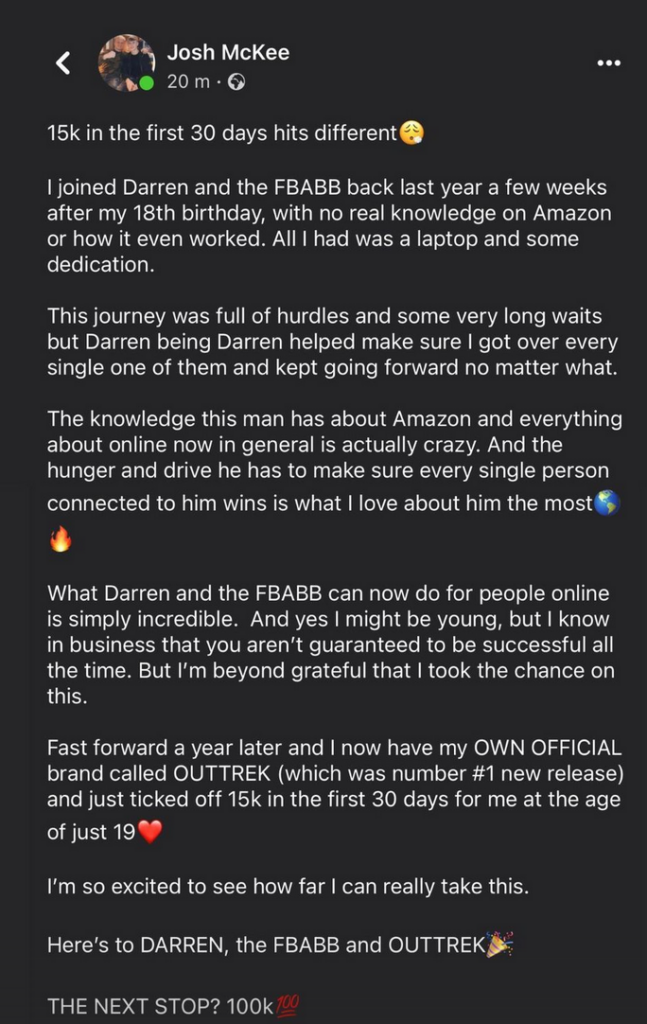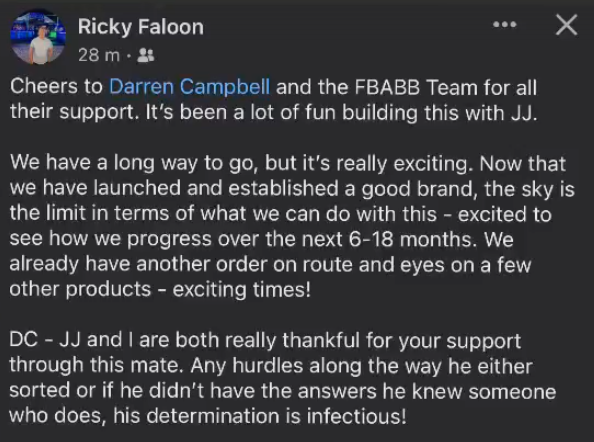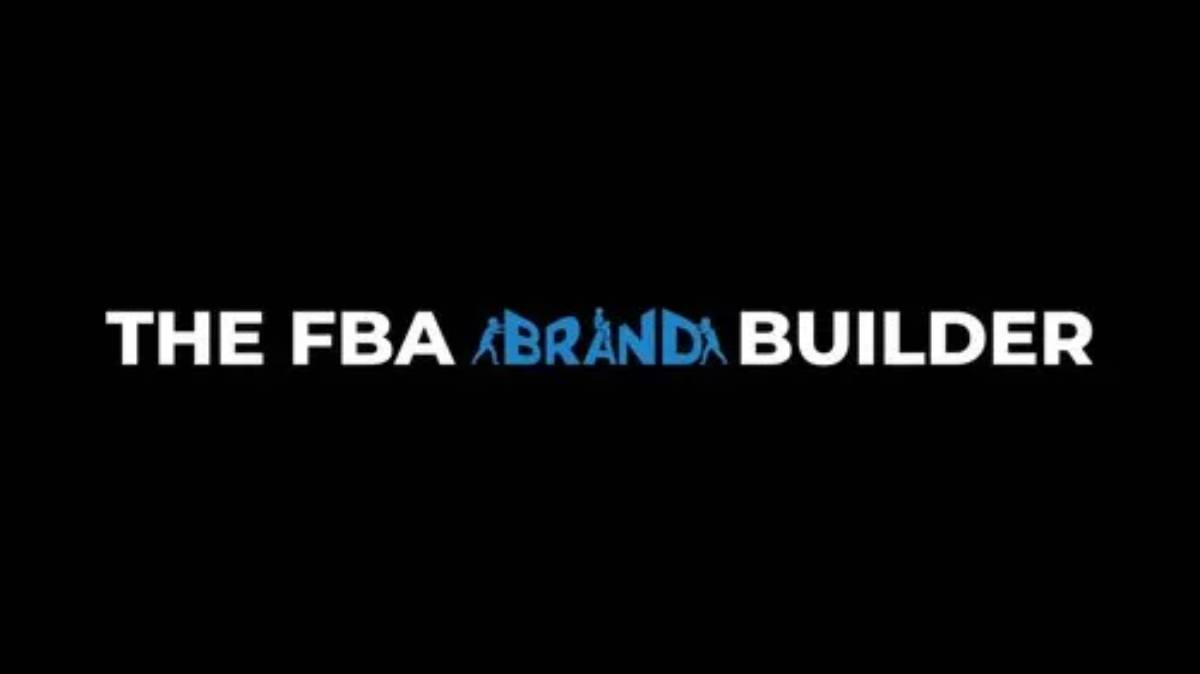When choosing an Amazon FBA program, transparency is everything. Potential students want to know what they’re paying for—not just that others have supposedly made money. Yet, The FBA Brand Builder relies on a specific marketing strategy that skips educational content in favor of testimonials and sales screenshots. Unfortunately, that leaves prospective customers wondering if there’s any substantial knowledge behind the glossy marketing.
Take, for instance, one testimonial from Ryan Stewart, who describes his journey with FBA Brand Builder: “Building a brand from scratch and crushing over $27,000 in only your first month selling on Amazon US just hits different.” Statements like this are definitely enticing, but they’re heavy on the results and light on the methods. There’s no insight into the actual strategies or processes taught in the program.
Another testimonial from Josh McKee emphasizes Darren’s role as a mentor, saying, “Darren being Darren helped make sure I got over every single one [of the hurdles] and kept going forward no matter what.” This testimonial is loaded with praise but offers little detail on what the program itself offers beyond a supportive coach. It’s clear that participants feel connected to Darren, the founder, but this doesn’t guarantee that they’re getting the tactical skills needed to succeed independently.

Limited Transparency: Only “Results” Are Public
The FBA Brand Builder stands out for what it doesn’t provide: publicly accessible educational content. Unlike established educational platforms, which offer blog posts, sample lessons, or even free tutorials to build trust, FBA Brand Builder keeps nearly everything behind a paywall. Anyone interested in learning Amazon FBA has no way of assessing the program’s quality without paying upfront. This lack of openness is concerning, especially given the high cost of entry for many FBA programs.
What is available publicly are carefully curated success stories, like the one from Ricky Faloon, who wrote, “Now that we have launched and established a good brand, the sky is the limit.” Again, while the sentiment is positive, there’s no transparency around what Ricky actually learned, nor any information about how new students could replicate that success.

Missing Educational Value
For a program claiming to teach the fundamentals of Amazon FBA, FBA Brand Builder’s absence of open educational resources is striking. Real experts often establish credibility by offering content to the public to showcase their methods and insights. Here, that doesn’t seem to be the case. Instead, the marketing strategy relies on emotional stories, connections with Darren, and screenshots of earnings—none of which speak to the actual value of the training.
In fact, the program’s lack of transparency in instructional content raises questions about the quality of education being provided. Without clear examples of expertise, the risk of signing up becomes higher. It’s worth noting that some of the FBA Brand Builder’s roles, like support positions, are reportedly outsourced to the Philippines, which might indicate that a large part of the operation relies on third-party support rather than in-house expertise.
What to Consider Before Signing Up
If you’re considering joining any Amazon FBA program, especially one with limited transparency like FBA Brand Builder, here are some essential questions to keep in mind:
- Do they share valuable knowledge publicly? Any reputable program should be able to demonstrate its expertise with freely accessible content that provides actual value, not just hype.
- How are the success stories verified? Testimonials are easy to manipulate. Ask if there are any case studies with clear, documented success metrics.
- What’s the experience level of the team? With the program’s reliance on outsourcers for certain roles, it’s unclear if there’s real expertise behind the scenes. Be wary if you can’t get a clear picture of who’s guiding your learning.
- Is the program upfront about what it teaches? Many courses will provide outlines, syllabi, or preview lessons. Here, that’s noticeably missing, which makes it harder to judge if the content is thorough or if it’s simply a compilation of generic FBA advice.
The Final Takeaway: Don’t Rely Solely on Testimonials
For potential students, relying on testimonials isn’t enough to justify the investment. While success stories like those from Ryan Stewart and Josh McKee might sound inspiring, there’s a glaring lack of actionable information about the program itself. Transparency is critical in this industry, where the journey to success is rarely as simple as it seems in promotional posts.
For anyone serious about Amazon FBA, choose programs that demonstrate knowledge, share educational content openly, and help you make an informed choice—before you’re asked to hand over payment.

